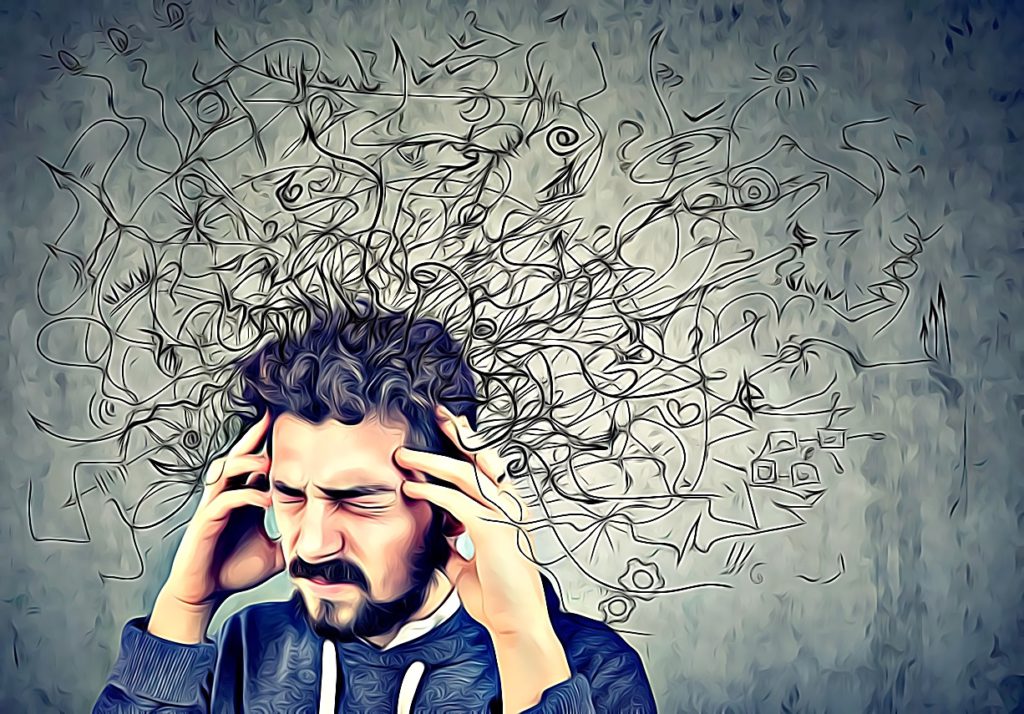Are you looking to conquer existential dread and become comfortable with uncertainty? Well, you are one of many. Mental health issues are common among adults of all backgrounds and while some are obvious, others are suffered in silence. Fortunately, most disorders respond to treatment and therapy so you can fully recover and overcome the challenges.
Recognizing mental health problems is crucial to conquering them. You also need prompt solutions to prevent further escalation of the condition. Existential dread, also existential crisis/anxiety, is one of the mental challenges everyone deals with at some point in life. Below is a brief definition of existential dread and eight tips for conquering it.
What is existential dread?
Feelings of unease concerning the meaning of life, freedom, and choices we are dealt sum up existential crisis. However, the existential dread meaning has much more to do with the pains and pressures of existence, including the fears and anxieties associated with living.
In existential dread definition, the idea is that life is pointless because of all the boundaries and limitations, compounded by death, which is inevitable regardless of what you accomplish. These feelings occur to all adults at some point and also have various triggers. Some include:
- Unwanted life transitions, such as aging
- Feelings of being in a standstill with little to no progress
- Traumatic and life-changing experiences
- Pandemics and other large-scale crises
- Loss of a loved one
- Rejection and changes in identity
There are several other triggers, but the concerns remain the same. Existentialists approach the dread as an awareness journey that’s necessary for life. It is a complex phenomenon that makes you aware of your freedoms, possibilities and how your life will end one day.

Tip for Conquering Existential Dread
While it dawns on us all, you can cope with existential dread without suffering the adverse effects of the mental problem. Here are eight tips to help you conquer existential dread and all its fears:
1. Find the Root Cause
What is existential dread? This is the most crucial question as it unlocks answers to why you are suffering in the first place. Therapists identify various causes of existential fears and symptoms that can help you determine whether you face this particular mental crisis.
Reasons could be anything from fear of death and loss of a loved one to unhappiness in the workplace. It is recommendable to see a therapist. Some signs that suggest existential dread include anxiety, depression, isolation from social places and friends, loneliness, feeling overwhelmed, constant worry, and lack of energy and motivation.
2. Keep a Journal
Therapists recommend keeping a journal to most mental health patients, as it is a way to monitor though processes and identify triggers for questions that occur to you. From these patterns, specific instances, like skipping breakfast, sleeping for fewer than recommended hours, or reading news before going to bed, can emerge as primary reasons for increased feelings of dread. The journal also helps you to reflect on aspects that satisfy your life.
3. Use Breathing and Exercise Programs
Breathing exercises are used to treat anxiety symptoms and help calm down your mind, reduce heart rate, and soothe you into relaxation. They are ideal for managing the adverse symptoms of existential dread. Exercise programs, such as Pilates, Yoga, and Martial Arts, also show great promise in treating mental disorders that arise from stress, worry, anxiety, and fear of the unknown.
4. Relaxation and Meditation Techniques
Relaxation techniques aim to get you relaxed and pair with breathing exercises to help you release the tension from your body. Meditation reduces anxiety and is an effective way to learn, accept, and let go of the things you cannot change. Meditation helps you deal with the thought of death and anxieties of daily existence, putting your mind at ease to recognize and enjoy what makes life beautiful.
5. Talk to Someone You Trust
Sometimes talking to someone about how you feel and all your fears in life is all you need to start conquering existential dread. You can talk to various people, including a loved one or someone who has conquered existential dread, to learn from their experiences. The goal of sharing is to help sort through your challenges and get insights or second perspectives to help deal with the situation.
6. Reaffirm Your Goals and Values
Existential dread has many triggers, such as losing a job, large-scale crisis, accidents, and failure in different aspects, including not achieving life goals. Reaffirming your values and goals during these challenging periods can help you restore life meaning and set new purposes that allow you to become happier and more successful. Some values that can bring back the meaning of life include community compassion, optimism, kindness, honesty, respect, wealth and status, knowledge, exploration, and more.
7. Get Comfortable with Uncertainty
Sadness, worry, and fear are part of life that we all accept and can deal with them by finding all the relevant questions and their answers. However, we cannot use the same approaches for existential dread. Sometimes finding answers to the hard questions in life isn’t what you need to live a happy and successful life. Getting more comfortable with not knowing can help you focus on enjoying life’s beauties while working towards more success and satisfaction.
8. Speak to a Therapist
A distracting existential crisis is overwhelming and can change your life for the worse. It is crucial to find help as soon as possible to start therapy and conquer the inevitable distress we all go through. The therapist will help you answer various questions concerning the causes of your dread and find ways to manage symptoms. They have the experience and understand what it means to have existential dread.
How to Deal with Dread Effectively
The first step in dealing with existential dread is to identify exactly what is causing your existential dread attacks. In other words, you need to identify what are the triggers that cause your dread attacks and learn to recognize those triggers. Once you identify your triggers and find ways to get rid of those triggers, then you can learn to deal with your existential dread without any more negative thoughts or feelings.
Existential fear can feel incredibly heavy, especially when they start pulling you into an existential crisis. However, you can deal with these fears before they take control of your life. Is tunnel vision creeping in on you again? These simple tips will brighten your outlook again. You can generally handle these feelings (like fear, worry, or sadness) just by accepting them for what they are natural parts of life.
Fear of annihilation can be defined as a form of existential anxiety or the feeling of impending doom. Existential dread is similar to the anxiety about death but differs in that it usually lasts for years.
When you deal with existential anxiety, you are going to be much more able to focus on living a meaningful life. It will help you to discover a deeper sense of happiness and fulfillment.
If your anxiety gets out of hand, you may have to seek professional help and seek treatment for a serious existential crisis. But the good news is that it is not impossible to overcome this.

Medical Treatments for Existential Dread
Existential dread is sometimes treated using medications such as antidepressants and anticonvulsants. The fact that these drugs treat the symptoms can make them very powerful. Unfortunately, some drugs are used inappropriately. For example, when a person is given benzodiazepines to calm them down, they can actually cause insomnia, which can intensify the effects of the drugs and make it even more difficult to sleep at night.
There are many different types of treatment for this condition, but none are totally successful. Sometimes, it is a combination of several of these factors that lead to an exacerbation of the condition, which may cause one to become very depressed and suffer from existential dread.
What it Feels Like to Have Existential Dread (Symptoms)
Existential dread is an intense feeling that is often accompanied by a sense of unreality and uncertainty. It can be caused by fear of the unknown, but also because of fear of death. The fact that this feeling of uncertainty has many different symptoms and causes is what makes it so difficult to control. It is the reason why people who are afraid of dying have a difficult time dying. These symptoms of existential dread can cause a person to feel like they are going crazy.
Existential anxiety and death are related in that the two are intimately linked. The only way to really control one of these fears is to take steps towards reducing existential dread. So what exactly is existential dread? It’s the feeling of dread that something very important, very life-changing is about to occur. This sense of fear is often followed by a deep sense of hopelessness.
Causes of Existential Fears
- Existential fears can also be a result of severe depression. In this case, an anti-psychotic drug would be prescribed.
- Existential fear can also be caused by anxiety. People who suffer from severe anxiety often develop feelings of unreality and uncertainty, so taking anti-anxiety drugs can often alleviate their symptoms and make them feel much better.
- Existential fear can also be caused by loss of life meaning. This can be caused by the passing of someone close to us or by our own death. Our loss of a loved one can trigger a sense of loss of meaning in our lives. Death is also a form of annihilation because it means the end of an entire world and its place in it.
- Existential fears can also be caused by changes in the environment. When a person’s beliefs or moral compass has been shaken, it can trigger this condition. People who are open and accepting of the world may not suffer as much from it, but those who are closed and defensive of their views can feel the effects of the change very keenly. This condition is very difficult to reverse.
- Existential fears are also caused by changes in one’s health. Stress and depression are known to be associated with it. When one is facing financial or personal difficulties, these conditions can weaken a person’s immune system and make them susceptible to existential dread.
- Existential fear can also be caused by changes in one’s environment. When the environment changes around a person, they can react in different ways, which can also trigger this condition. Changes in one’s environment can be caused by things such as loss of a job or change in the workplace.

Four Different Types of Existential Fears
There are actually four different types of existential fears. The causes of most existential dread can be broken down into two major parts: a fear of unknowns, and a fear of the unknown meaning of life. Both of these parts are important and each deserves its own consideration, as both of them contribute to a deeper existential dread.
The first type is the fear of God – this type of existential anxiety is a deep fear of what is beyond the mind’s perception, and so is usually only experienced by those with very strong religious convictions. In this case, one should not expect God to come to one’s rescue when he does something bad.
The second kind of existential dread meaning is the fear of death – this is the most common type of existential fear, and it is typically accompanied by a sense of uncertainty and the inability to control the future. Death may be an unavoidable part of life, but a person who lives in fear of it is probably suffering from other serious emotional problems, and his/her life may be pointless. A person with this kind of existential fear may be unable to face death and may feel that his/her life is worthless because of it.
The third kind of existential anxiety is the fear of death – this type of existential dread is experienced by those who have been diagnosed with terminal illnesses. This kind of existential dread can be life-altering and can prevent the person from leading a meaningful life, and thus prevent the person from participating actively in society. It is likely that this kind of existential dread is caused by anxiety about one’s health and mortality, which are often triggered by the fear of dying. It is believed that this type of existential dread is caused by fear of death being part of the equation in one’s life (the death of a loved one often triggers the fear of death in everyone).
The fourth kind of existential dread meaning is the fear of the unknown – this type of existential dread occurs when one is afraid of the unknown, as it is an inevitable part of the process of life. People who have had this kind of existential anxiety have been known to have a deep fear of death – a deep fear that, if something happens to them, they are not able to leave any meaningful clues behind, such as a funeral or burial, and they are not able to know what their life’s meaning was
Treatment of existential dread should start as early as possible. However, you should not wait for a panic attack to hit you. Get help right away.
Summary
There are various other things you can do to cope with existential distress and ultimately conquer it. As existentialists have it, becoming aware of this distress is a necessary journey to accepting life and focusing on what matters, which is health, wealth, community, making an impact, kindness, and other values mentioned above. It is also essential to recognize the problem and find experienced therapists that have helped others conquer existential dread.

